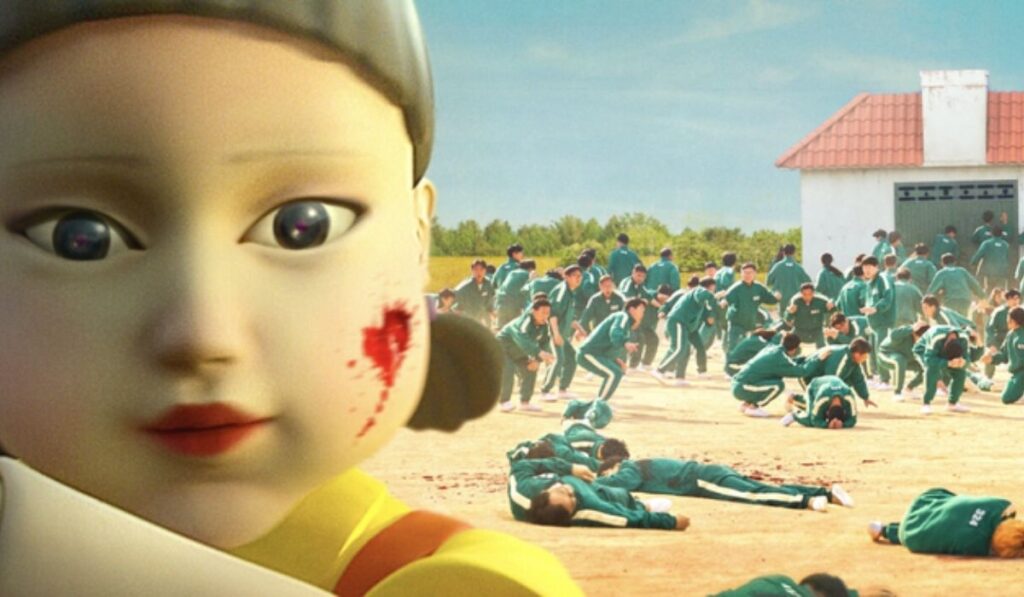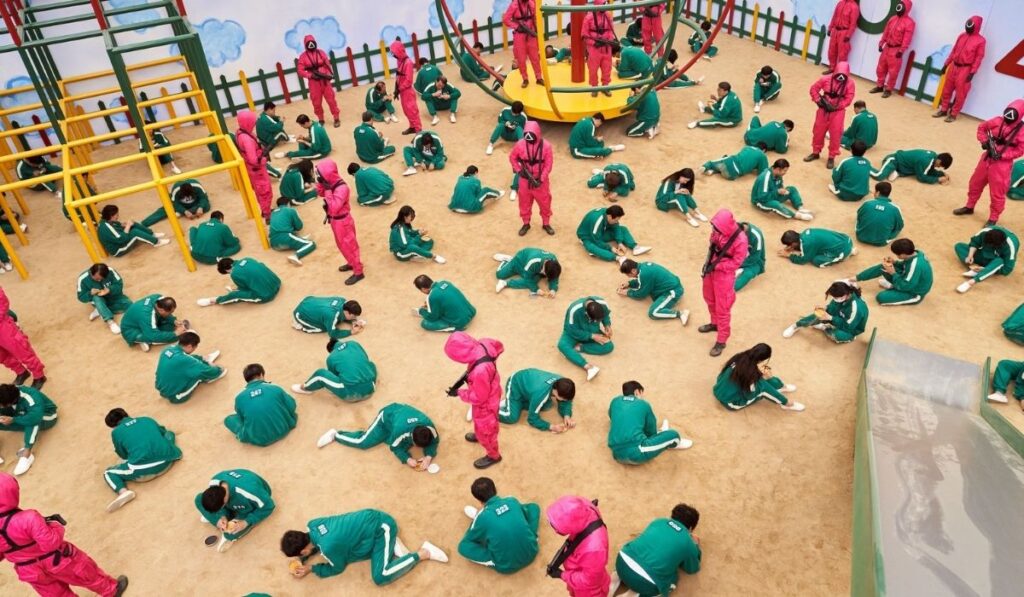Human names are numbed into numbers in this bet on me, baby “game,” where rich sadists, seemingly seduced by bloodshed, bet on contestants. So, just how skip-worthy is this horse race parody?
Released September 17, 2021, Squid Game estimatedly brags a $900 million worth and 111 million fans, far surpassing British Romance Bridgerton. Flattered as the “weird future of global tv,” with K-politicians punctuating it in political foreplay and imitated, with Abu Dhabi organising its real-life squid game, ten brutal years of script knock-back become blanketed. However, this squid’s – sour to digest – success can’t quench our “skip it” scrutiny.

This scrutiny survives – of course, until some pink soldier shoots it! – on slating the storyline, representation, aestheticisation. Before you ban this as biased, believe us when we say that this scrutiny satisfactorily factors in some positives, but succumbs to the overriding wrongs this show wronged us with.
Our First Impressions Were Faux Pas! The Storyline Screams Sadism
Never could we fathom this game, featuring dolls, to be a labyrinth of “life and death.” We may even “esteem” it – yeah right! – as a rather extremist, South Korean take on khatron ke khiladi. No wonder, this show has parents calling quits, left, right, and centre.

Squid Game is the last level of a series of survival games stained with gore so gaudy, it makes us wonder whether survival is synonymous to sadism. The characters, called contestants, trade pains for a piling piggy bank. Weirdly enough, we’re left wondering if they’re plain dumb or so desperately driven by their deprivation that they don’t probe into why they’re being paid to die?
Although, one might get carried away by the creators “puny” parables on South Korean suffering; from organ trafficking to obsessive capitalism ordaining this slaughter spree, the tropes accentuated are admirable, but are they admirably arrayed?
Massacre Appears So Aestheticized
Specifically enough, “The Man With An Umbrella,” frustratingly features symphonies playing behind picturesque playgrounds turned dead pools by pink soldiers. We’re confused: are the creators humouring or trivialising death? Is mass murder really a playground pastime?

Let’s assume we’re over-reacting. After all, our favourite films are not all-flirt and no fight. But, this series sensationalises gore to the point that it’s a sorry excuse for a survival “game.”
So, why magnify this macabre murder serial? We’d rather credit the soon-to-be-killed side-character repping the A1 audacity to speak our minds: “what kind of sick game is this?”
The Representation Isn’t Really Representative

An Indian actor, Anupam Tripathi, plays a Pakistani man Abdul Ali – uhhh, don’t Pakistanis land on K-land? Then there is the “humour” downplaying dilemmas of immigrants and harassment. Whether its Ali labelled an illegal alien or Han Mi-nyeo pouncing on every male as “babe” and parading a pink soldier as a sexual harasser, the serial feels out of sync with sensitivities.
Any Green Light For Game-Watchers?

Some may appraise the political parallels implied. The entirety of the series, with human names reduced to numbers mimics concentration camps, similar to those in Hitler’s Germany. But even then, this series is less of a trauma awakener and more of a trauma reinforcer, or even glorifier!
The Overriding Red Light:

True to our stance, it is not these tropes that we argue are appalling, but their arrayment that apparently absolves all perpetrators of wrongdoing. And so, it sets an unconscionable precedent for watchers, be they binging or not.
Indeed it is believed that the series becomes better on a second watch, but if the first is so taxing, why opt for another? Keeping such scrutiny aside, should you still choose to challenge yourself by streaming Squid Game, you can do so here.

